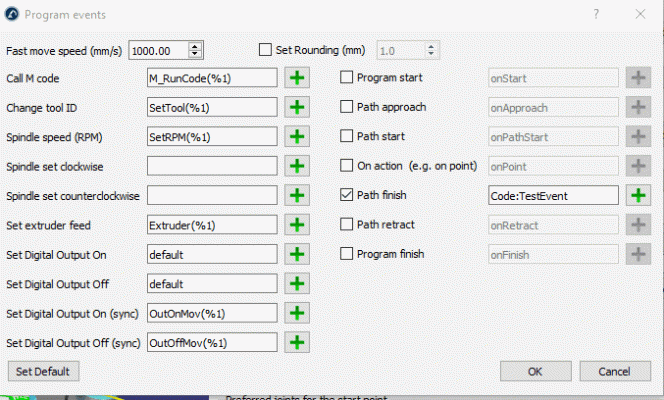09-24-2019, 01:18 PM
I am using RoboDK for our UR10e, we will be sanding parts with it. The UR is not in our building at this time as it is at our OEM getting the cell for the sanding constructed. I want to output the linear inches of my path to help and set a global variable on the UR, my OEM says that this is possible but has not given me the format of what that need to look like coming out of the UR post processor. I am outputting an apt file from Siemens NX. i have figured out how to change the apt file to output the linear inches of the tool path and i can change it to look how i want but as of now it is just like this, just because i copied the AUXFUN for now
GOTO/879.0570,413.1193,-11.3725
AUXFUN/170.457
PAINT/SPEED,10
i have read thru some of the help threads but i am still unsure of how to get RoboDk to read this and output it to what i need it to be. Again, i don't know how it will need to look in the script file but for now if i could understand how to get RoboDk to read something from the apt file and output it how i need it to be would be great

Thanks
John
GOTO/879.0570,413.1193,-11.3725
AUXFUN/170.457
PAINT/SPEED,10
i have read thru some of the help threads but i am still unsure of how to get RoboDk to read this and output it to what i need it to be. Again, i don't know how it will need to look in the script file but for now if i could understand how to get RoboDk to read something from the apt file and output it how i need it to be would be great
Thanks
John




